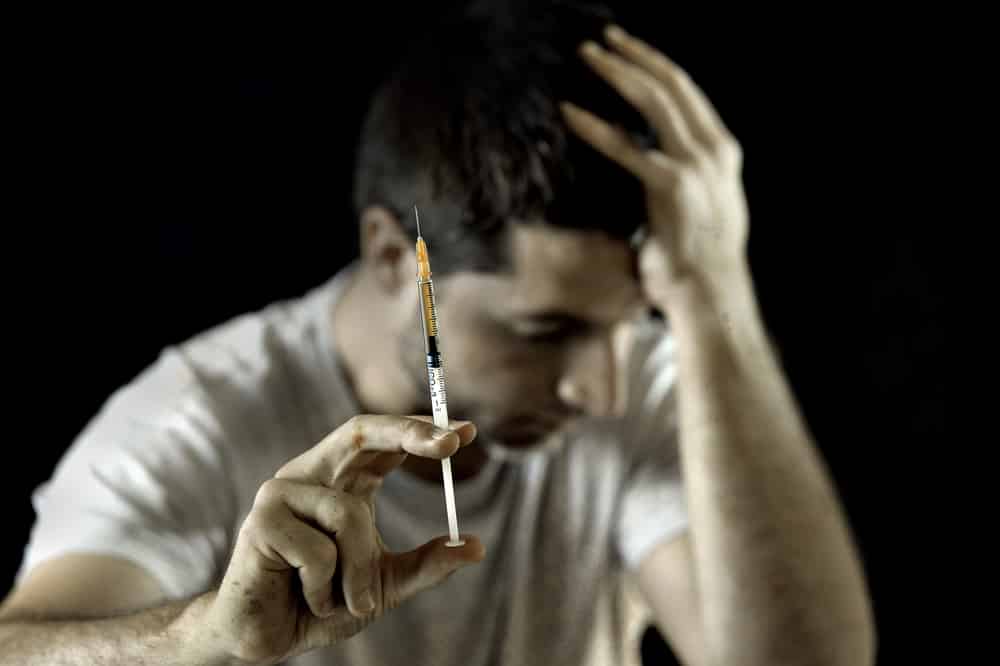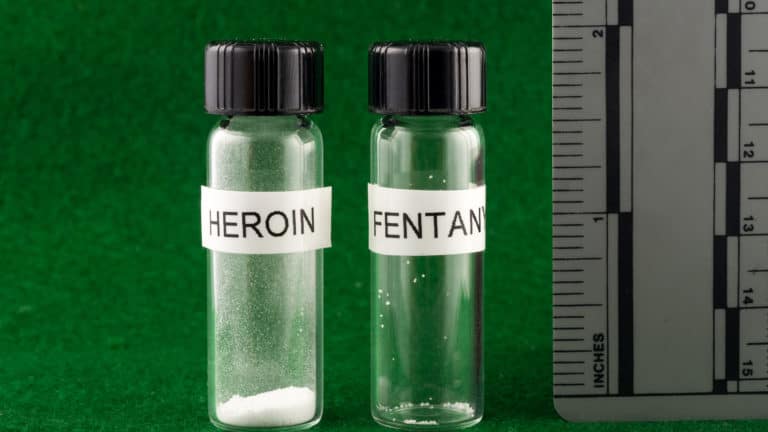Determining if substance use has developed into an addiction requires an individual to examine their actions and habits. As a powerful, potent opioid, heroin can spur addiction after only one use. As stated by the National Institute on Drug Abuse, 626,000 Americans met the criteria for heroin dependence in 2016. Due to the ongoing opioid epidemic, that number is steadily increasing.
In order to determine if you are struggling with a heroin addiction, you will need to be able to identify the common signs of this addiction, as well as understand the dangers of heroin abuse if left untreated.
Signs of Heroin Addiction
Universal signs of addiction include isolation, secretive use, and personality changes, among others. Although heroin addicts display these signs, there are heroin-specific indicators that suggest addiction has developed. These indicators are listed below.
Lethargy
As a central nervous system depressant, heroin slows down cognitive functioning. Individuals under the influence of this strong opioid will often appear drowsy, lose consciousness or be unable to keep their balance. Speech may also often be slurred.
Neglecting Responsibilities
Neglecting family, employment, finances, or other fundamental responsibilities is a strong indicator of addiction. Once addiction has developed, the only remaining responsibility in the mind of the user is obtaining more of their drug of choice.
Change in Appearance
If an individual has lost or gained a significant amount of weight, it is often a sign that heroin addiction has developed. Being indifferent towards personal hygiene or grooming is also common among those battling this addiction. Many individuals struggling with heroin abuse look pale, tired, and unkempt.
Viral Infection
Because injection is common among heroin users, the risk of contracting blood-borne viruses is very high. If an individual has contracted diseases such as hepatitis or HIV, it is a strong indicator that a heroin addiction has fully developed.
Scarred or Collapsed Veins
Because the most common method of heroin administration is injection, those suffering from this addiction will likely display injection scars on the body, most commonly in the arms. Frequent heroin injection will cause the veins to eventually collapse or become infected over time.
Dangers of Heroin Addiction
As a central nervous system depressant, heroin suppresses the respiratory system, resulting in dangerously low oxygen levels which negatively impact the body’s vital organs. As stated by the National Institute on Drug Abuse, opioids depress breathing by changing neurochemical activity in the brain stem, where automatic body functions such as breathing and heart rate are controlled. Due to the depressant qualities of heroin, a common cause of overdose fatality is breathing cessation or cardiac arrest.
An insidious contributor to overdose fatalities involving heroin is the inclusion of fentanyl. Oftentimes, those who illicitly manufacture heroin cut the drug with fentanyl, a synthetic opioid that is 50 times stronger than heroin. Being unaware of the presence of fentanyl, individuals can easily overdose as fentanyl increases the potency dramatically. According to a study conducted by the National Institute on Drug Abuse, the results showed that among the 42,249 opioid-related overdose deaths in 2016, 45.9% involved fentanyl.
Treatment for Heroin Addiction
Addiction is a devastating disease and you do not have to fight it alone. The founders of Asheville Recovery Center, as well as many of our addiction therapists, have struggled with addiction and now enjoy life in recovery. They understand the struggles of addiction and how difficult it is to overcome on your own.
At Asheville Recovery Center, specialists have combined various therapies, treatments and 12-step approaches to develop an effective, hybrid model of treatment designed to fit every individual’s unique circumstances.
If you feel that you or a loved one is struggling with substance abuse, our specialists are on standby and ready to help. Call (828)518-6996 and speak with an addiction expert today so you can take the first step towards a rewarding life of sobriety.








